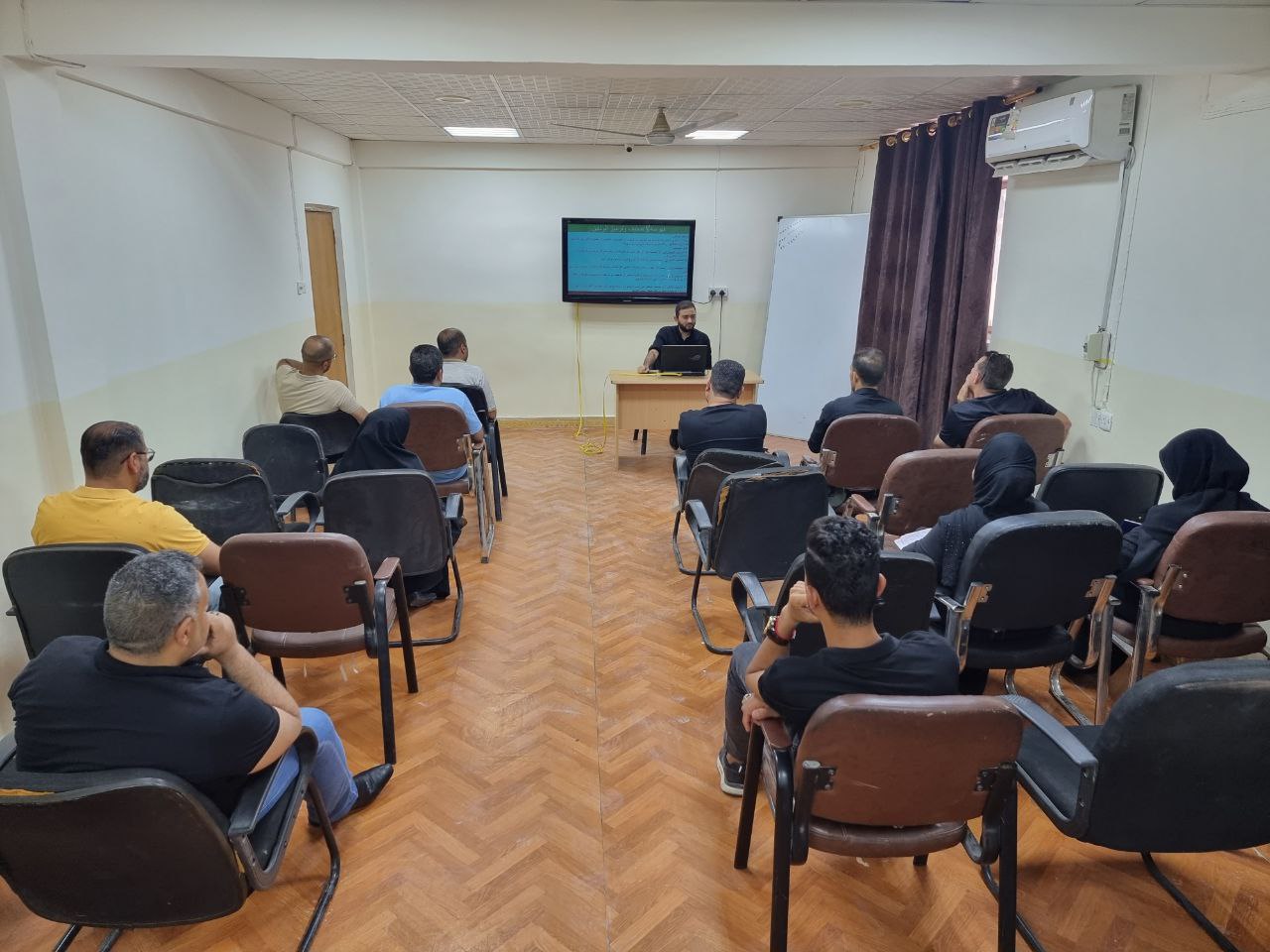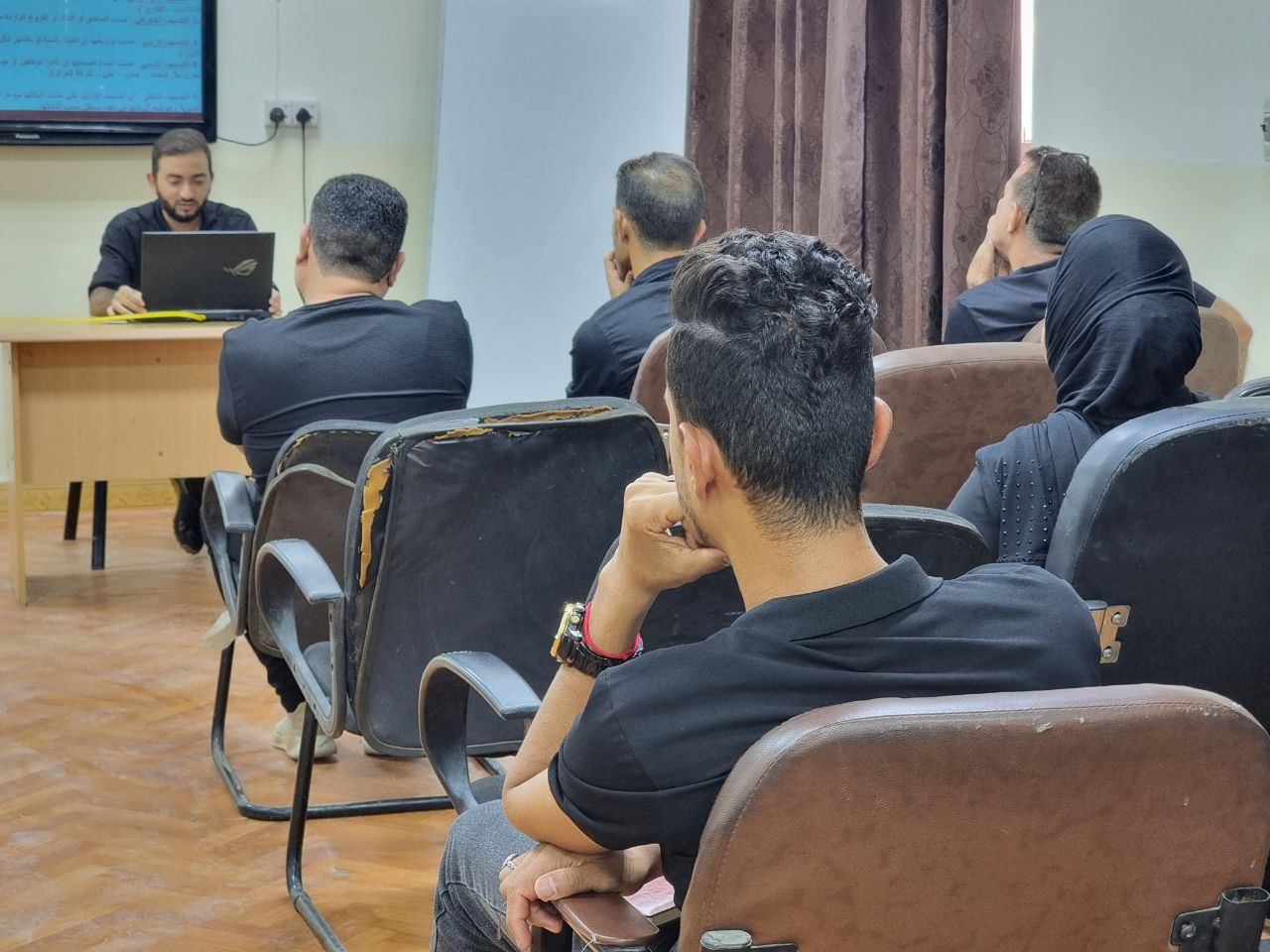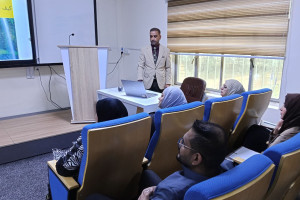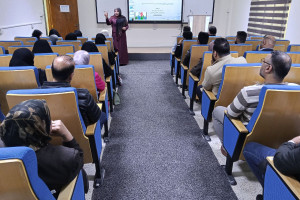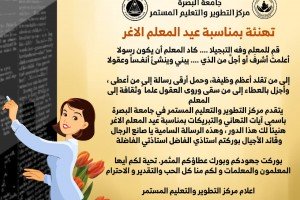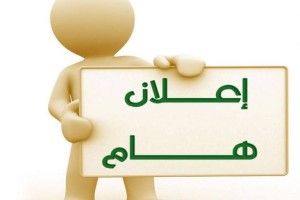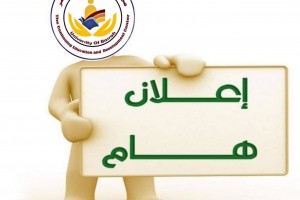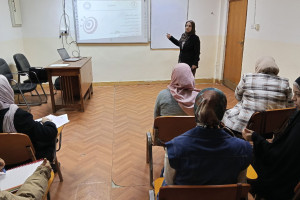
The Center for Development and Continuing Education at the University of Basra organized a course on electronic archiving.
The aim of the course was to enhance the participants' digital awareness and emphasize the necessity of advancing the university institution's governance through highlighting the importance of electronic archiving. Electronic archiving is considered an essential component of the strategic vision for paperless management, aligning with the objectives of sustainable development.
The course, presented by instructor Mohammed Diaa Badr Jawad, covered topics related to traditional archiving and its drawbacks, such as document deterioration, loss, and slow retrieval. These drawbacks can be overcome by employing electronic archiving as an auxiliary element to address the limitations of traditional methods. The course discussed the available tools for electronic archiving, focusing on the utilization of Google Drive for efficient electronic archiving that enables seamless communication and access to files by multiple administrators or employees. The course also highlighted the advanced search capabilities of Google Drive, including artificial intelligence-powered word search within documents and file sharing features. Additionally, barcode technology and its integration in electronic archiving were discussed as a means to expedite document retrieval.
Practical application of the Plustek electronic archiving device, specialized in rapid scanning operations, was demonstrated during the course. Moreover, the course delved into the essential features that any electronic archiving software should possess by examining one of the most popular electronic archiving programs available in the global market.
In conclusion, the recommendation emphasized the need to continuously elevate the technological awareness among the staff of the University of Basra and to employ electronic archiving tools for digitizing official documents, research, authored books, images, and more. It acknowledged that this transition might involve some errors and delays, but these are preferable over adhering to outdated methods, in alignment with the saying that "better late than never
